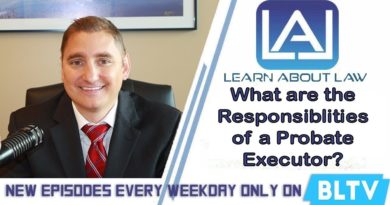Can a Trust Beneficiary Sell Her Interest in the Trust Assets?
The beneficiaries of a trust have a current or future legal ownership interest in the assets held by the trust. The trust terms will dictate when the beneficiaries receive distributions from the trust and how much they receive. Sometimes, however, a beneficiary wants or needs the value of her interest in the trust prior to the scheduled distribution. That brings up the issue of a beneficiary’s ability to sell her interest in a trust. The Indianapolis trust attorneys at Frank & Kraft answer the question “Can a trust beneficiary sell her interest in the trust assets?”
Trust Basics
Although trusts can be highly specialized to accomplish very specific goals, the structure of all trusts is fundamentally the same. A trust is a legal relationship where property is held by one party for the benefit of another party. The person who creates a trust is referred to as the “Settlor”, “Trustor” or “Grantor.” The Settlor transfers property to a Trustee, appointed by the Settlor. The Trustee holds that property for the trust’s beneficiaries as well as invests trust assets and administers the trust terms according to the terms created by the Settlor. Trusts all fall into one of two categories – testamentary or living trusts. A testamentary trust is activated by a provision in the Settlor’s Will at the time of death whereas a living trust activates once all formalities of creation are in place and the trust is funded. Living trusts can be further divided into revocable and irrevocable living trusts. Because a testamentary trust is activated by a provision in the Settlor’s Will, and a Will can always be revoked up to the time of the Testator’s death, a testamentary trust is also revocable up to that point.
Why Might a Beneficiary Want to Sell Her Interest in a Trust?
The interest a beneficiary has in trust has value because that interest is tied to the value of the trust assets. Exactly what that value is will depend on things such as what type of assets are held by the trust, how many beneficiaries have an interest in the assets, and the terms created by the Settler. If the trust terms don’t call for distributions until a beneficiary reaches a certain age or calls for small disbursements over a period of years, the beneficiary’s interest is of no practical value currently. That beneficiary may want or need the value of that interest now, not down the road. In fact, there are companies that offer to buy a beneficiary’s interest in a trust at a discounted price. For example, if a beneficiary is entitled to $1 million over the next ten years, a third-party buyer might offer to buy the beneficiary’s interest in the trust for $500,000 right now.
Can a Beneficiary Sell Her Interest?
To determine if a beneficiary can sell her trust interest you must first look to the trust agreement itself. Many trust agreements include an anti-alienation clause that effectively prevents a beneficiary from selling or encumbering his/her interest in the trust. Conversely, the provisions of a trust may specifically give a beneficiary the power of appointment, effectively giving the beneficiary the ability to transfer his or her inheritance to a third party.
If the trust agreement is silent on the issue, you look to state law. A beneficiary cannot sell assets outright that are held in a trust, even if the beneficiary is the only beneficiary, because those assets are legally owned by the trust until such time as they are distributed to the beneficiary. The Trustee is legally obligated to abide by the terms of the trust, meaning the assets cannot be distributed until the trust terms call for it. The same analysis applies to encumbering your interest in a trust as well. If there are numerous beneficiaries it becomes even less likely that a beneficiary can sell her interest in the trust assets because the Trustee also has a legal obligation to treat all beneficiaries equally. As such, a Trustee cannot distribute assets to one beneficiary without distributing to all beneficiaries.
Contact Indianapolis Trust Attorneys
For more information, please join us for an upcoming FREE seminar. If you have additional questions or concerns regarding creating or administering a trust, contact the experienced Indianapolis trust attorneys at Frank & Kraft by calling (317) 684-1100 to schedule an appointment.
Paul Kraft is Co-Founder and the senior Principal of Frank & Kraft, one of the leading law firms in Indiana in the area of estate planning as well as business and tax planning.
Mr. Kraft assists clients primarily in the areas of estate planning and administration, Medicaid planning, federal and state taxation, real estate and corporate law, bringing the added perspective of an accounting background to his work.
Latest posts by Paul A. Kraft, Estate Planning Attorney (see all)


![Pass USCIS Biometrics Appointment On Your First Try [2022] Pass USCIS Biometrics Appointment On Your First Try [2022]](https://www.immi-usa.com/wp-content/uploads/2022/07/USCIS-Biometrics-Appointments-Tips.png)



